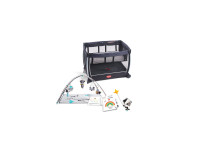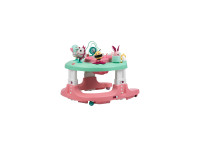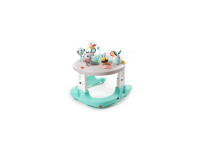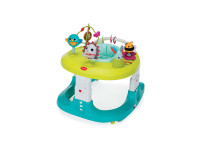- Our Products
- Collections
- Baby Development
- Parents Essentials
Created with love and care by our child development experts, this is a comprehensive set of guidelines for various baby development milestones and a tool for helping parents grow with their babies.
Imagination & Creativity 18 - 24 m

The Power of Imagination and Ability to Symbolize
The ability to envision objects or events begins to develop at around 18-24 months. Gradually, you baby becomes less reliant on concrete stimulants and begins to develop and enrich her inner world.
Going Beyond What the Eye Can See
Before the age of 18 months, your child only related to concrete things, which she could see, hear or feel - she was incapable of imagining things that were inaccessible to her senses. Now, she will slowly be able to envision more and more complex scenarios and acquire an important tool which will enable her to think in a free-flowing way about the world.
Symbolization and Representation
The ability to symbolize objects appears during this period and is the first expression of real imaginative play. Your little girl may pretend she is feeding her doll, for example. At this stage, the game is characterized by the use of materials that are on-hand. From approximately 20 months, your toddler begins to understand that toys, like dollhouses or toy garages, represent objects and people in the real world. The continued use of creative materials, such as water colors, crayons, play dough and more, will enable your child to develop her creativity, though this creativity is still unplanned and is not focused on the end-result.
Milestones
- Begins to play simple symbolic games, such as pretending to feed a doll.
- 20 months: Understands that toys represent objects or people from the real world.
- Can hold a pencil and scribble aimlessly.
- Towards 24 months: Holds a pencil almost correctly and draws in round movements.
- Most children begin to show preference for one hand.
- Reacts to simple, one-word, verbal instructions.
Tiny Tips
- Let your baby play with open-ended toys and games which do not have clearly-defined rules, such as wooden blocks. Encourage him to play with them in different ways, and do not lead him to what is considered the “right” way.
- When your child plays in his way, he is expressing originality and creativity. When you express pleasure in this, you contribute to his enjoyment which encourages more creative attempts.
- Your child’s ability to play independently and freely will positively influence his ability to be spontaneous later on in life.
- When your child experiments with creative materials, it is important to give him freedom of action and a place where he can play safely and unencumbered.
Articles
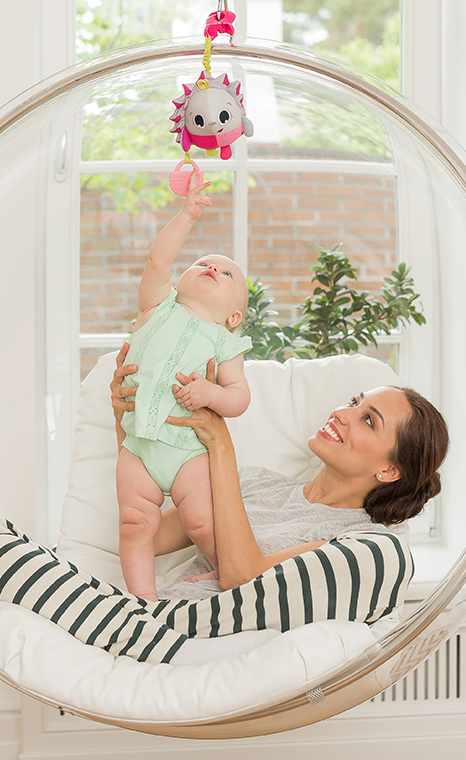
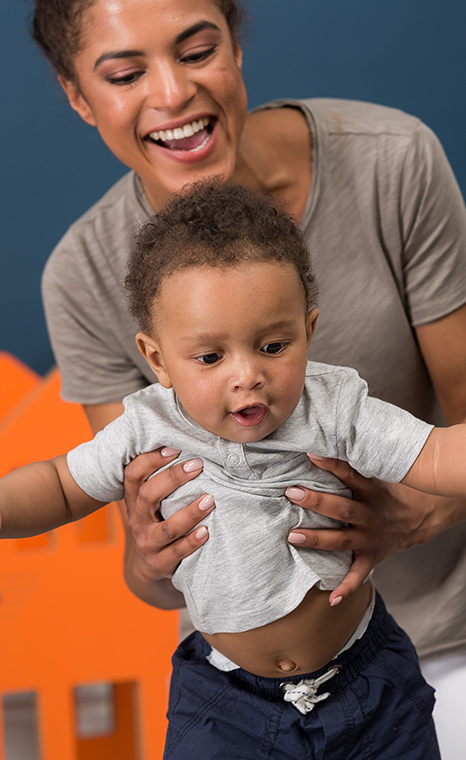

Understanding and Sense of Control
As they grow, babies begin to understand the connection between cause and effect. They see that there is a connection between their actions and the world around them and begin to realize that they can make interesting things happen.
Read more

Playing with Your Baby
Playtime is not only a whole lot of fun for parent and baby, it is a time when baby learns, grows and develops through exploration, interaction and bonding. Read full article to learn about how to make playtime more meaningful and get tips on creative ways of playing with baby's toys.
Read more
























 English - International
English - International French - France
French - France Spanish
Spanish German
German Portuguese
Portuguese English - USA
English - USA English - UK
English - UK Russian
Russian Italian
Italian Japanese - Japan
Japanese - Japan Portuguese - Portugal
Portuguese - Portugal Polish - Poland
Polish - Poland
